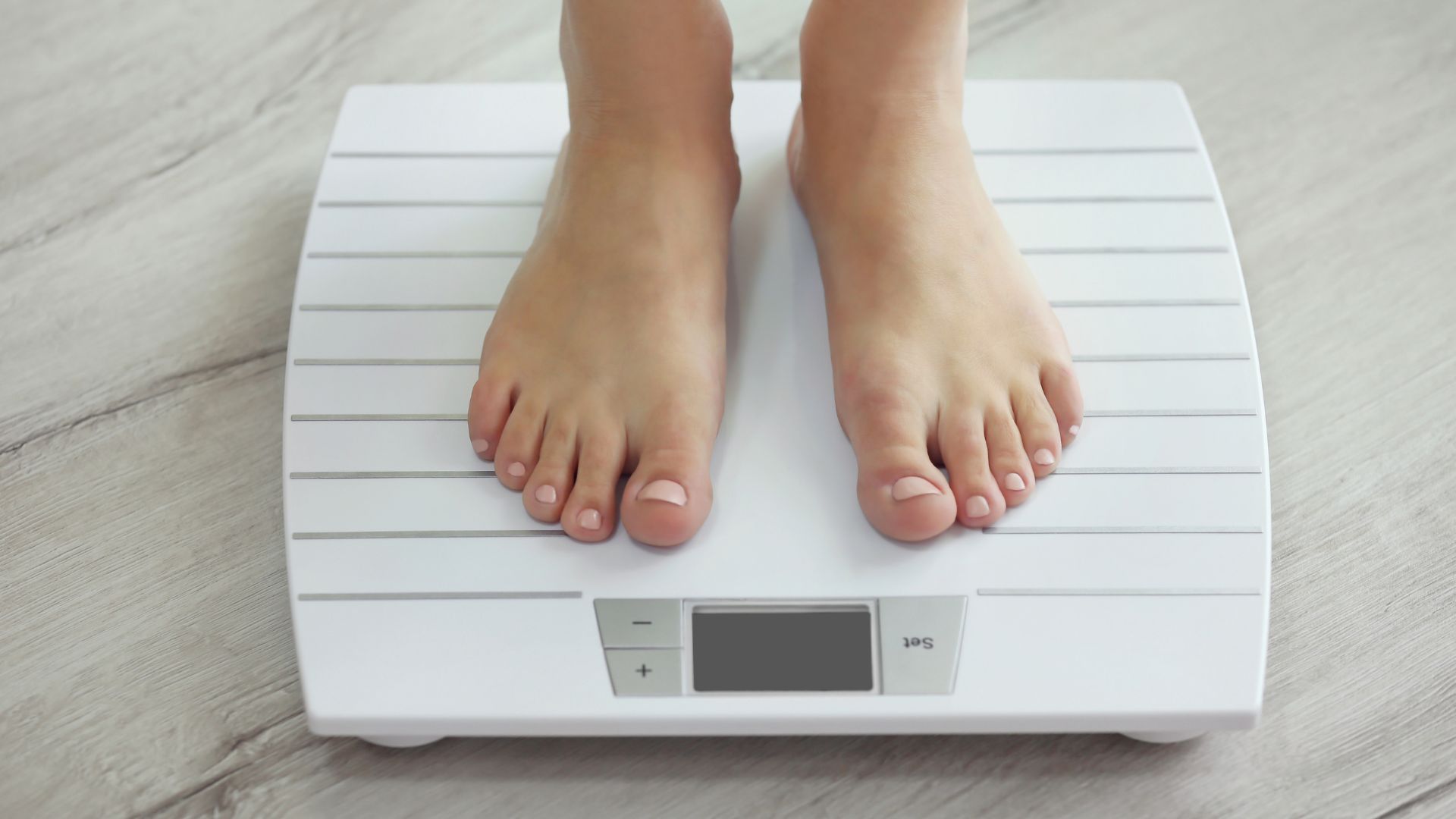
Nutrition & Weight Loss
Weight loss: how can your nutritionist help you lose weight permanently?
In most industrialised countries, the proportion of adults who are overweight or obese is historically high. Indeed, more than 30% of the Swiss population is not at a healthy weight and more than 10% is obese. Of this percentage of overweight population, a very large number suffer from this condition. Many would like to take action to feel better about themselves and improve their health. The word diet is on many lips, in magazines, books and social networks. People dream of losing weight quickly. According to most of these diets, in order to lose weight we have to reduce our daily calorie intake by depriving ourselves. But what does the word ‘diet’ actually mean?
A diet is primarily a way of eating (the Mediterranean diet, for example) or a dietary protocol in a specific therapeutic context, such as following an operation or illness. On the other hand, “going on a diet” is undeniably associated with a “slimming programme” which results in a calorie restriction whose sole aim is to lose weight by imposing deprivations on the body which can be deleterious. So beware, “going on a diet” is not recommended, especially if it is undertaken without support.
1 ) Slimming diets and rapid weight loss: a demotivating and potentially harmful short-term effect
As a nutritionist at the Clinique Naturelle de Genève, I follow many patients who have embarked on fad diets or not. Unfortunately, they regained all the weight they had lost, or even saw their weight increase some time after stopping the diet. This is the famous “yo-yo effect”! This pessimistic observation demoralizes the patients, they doubt their ability to lose weight and have a feeling of failure and low self-esteem which can sometimes lead to depression or BADs (eating disorders).
Initially, diets can lead to weight loss, but in the long term it is quite different. It is a mistake to think that you can change your weight at will and maintain it as soon as you have achieved the result, without any physiological changes. In fact, the body is very clever and will adapt metabolically as if it were facing a state of starvation. As soon as the diet is over and you return to your usual eating pattern or deviate from the diet you have been following, the body will store the food in the form of fatty tissue because it fears the lack of it. This is not desirable because the restrictions imposed can create deficiencies that are detrimental to the general state of health.
In order to achieve a positive long-term result, the new eating habits will have to be applied over the long term. Therefore, the weight loss must be slow, induced by a very unrestrictive diet and composed of healthy foods. This will help to avoid compensatory binge eating* and to maintain the new weight.
2 ) Successful weight loss: Addressing the cause of weight gain
In addition to diet, there are other factors linked to weight gain:
First of all, stress and especially chronic stress. When you are under long-term stress, the body secretes a hormone called cortisol which enables it (to a certain extent) to live with this permanent stress. This hormone is what is known as “hyperglycaemic”, i.e. it will increase the blood sugar level even without carbohydrate intake. In other words, we gain weight because of stress!
Another factor linked to weight gain is a sedentary lifestyle. Physical activity has many advantages, including increasing the metabolism. To meet the needs of the moment, the body draws on its reserves to feed the muscle cells and thus burns calories. Sport also has the effect of secreting endorphins, which enable the body to fight stress. Double benefit!
Sleep can also influence weight loss. The cause? A hormonal change. The mechanism is simple: in order to resist the fasting of the night, the body produces leptin, the satiety hormone. During the day, to keep us awake, the metabolism secretes ghrelin, a hormone that promotes hunger. Reducing our sleep time disrupts these mechanisms and therefore increases our appetite.
Other factors such as genetic predisposition, hormonal disorders, medication or an unbalanced microbiota can also be obstacles to weight loss.
When treating a patient at the Clinique Naturelle, the first thing to do is to determine the cause of the weight gain in order to be able to establish a tailor-made dietary protocol, as well as the changes in lifestyle that are essential for this weight loss. This is done through an anamnesis which will allow me to propose to the patient a specific solution to his problem and an accompaniment until the desired objectives are reached and validated by the therapist.
3 ) Rebalancing your diet for lasting weight loss
It all starts with the plate!
With my patients, I work on the content of the plate before anything else.
The choice of food is essential, the way it is cooked is also very important. It is also necessary to know the best time of day to eat certain types of food so as not to cause blood sugar peaks and to allow certain hormones to be secreted or to function better.
There are also many preconceived ideas that need to be corrected, for example with regard to “fats”. It is important to know that eating good fats not only does not make you fat, but on the contrary, a deficiency in certain essential fatty acids can be an obstacle to weight loss. The trick is to choose them in the right proportions (omega 3/omega 6 ratio) ** and to cook them in such a way as to preserve their benefits and not make them harmful through processing.
Another common misconception is that low-sugar or ‘light’ products do not make you fat. Not only do they usually contribute to weight gain, they are also harmful because they are full of chemicals such as sweeteners, additives and synthetic flavourings.
Once the diet has been rebalanced and adapted to each patient, I offer them solutions to improve their state of chronic stress. There are, for example, breathing techniques that will help regulate cortisol secretion and thus allow their blood sugar levels to decrease with a hypoglycaemic diet.
4 ) Sport, the pillar of weight loss
A schedule of sports sessions is also part of the weight loss protocol. Physical activity is essential to a healthy lifestyle for several reasons. Among other things, it allows us to be less stressed thanks to the secretion of endorphins, it provides more energy, improves sleep and makes us more productive at work. But what interests us most here is the impact on weight.
Sport not only burns calories:
- it builds muscle mass, which increases the basic metabolism. Having more muscle also means having a better capacity to store glycogen (glucose reserve) and a decrease in fat storage.
- burns calories during exercise but also afterwards and helps to compensate for overeating (high intensity physical activity).
- promotes good sleep and allows for better stress management.
regulates our appetite by modulating the secretion of orexigenic and anorexigenic hormones (leptin and ghrelin). *** - makes us feel better and can curb cravings.
- allows for better sensitivity of tissues to insulin and therefore reduces the risk of insulin resistance and diabetes depending on the intensity of the activity.
- modifies the microbiota by increasing the production of butyrate-producing strains, an anti-inflammatory short-chain fatty acid.
- allows weight loss to be maintained after the programme has been put in place.
Regular sports activity is therefore essential!
To sum up, to lose weight sustainably and without endangering your body, it is not a question of following just any fashionable diet that claims quick results without effort.
In any case, you must be accompanied by a nutritionist with whom you will do a global work of taking control on different levels as we have seen previously.
This holistic vision of the approach, which aims to rebalance the body/mind as a whole, is the only way to lose weight permanently, without yo-yoing and without risking damaging your health.
To obtain all the nutritional advice you need, contact the Clinique Naturelle in Geneva.
Caroline Vogt
Nutritionist at the Clinique Naturelle
*The ideal ratio of Omega 3 to Omega 6 is 1:1.
** The ideal ratio between Omega 3 and Omega 6
The ideal ratio of Omega 3 to Omega 6 is 1/4, i.e. 1 molecule of Omega 3 to 4 molecules of Omega 6.
***The main hormones involved in regulating appetite are ghrelin, which generates the feeling of hunger, and leptin, which tells your brain that you have eaten enough.



Leave a Reply